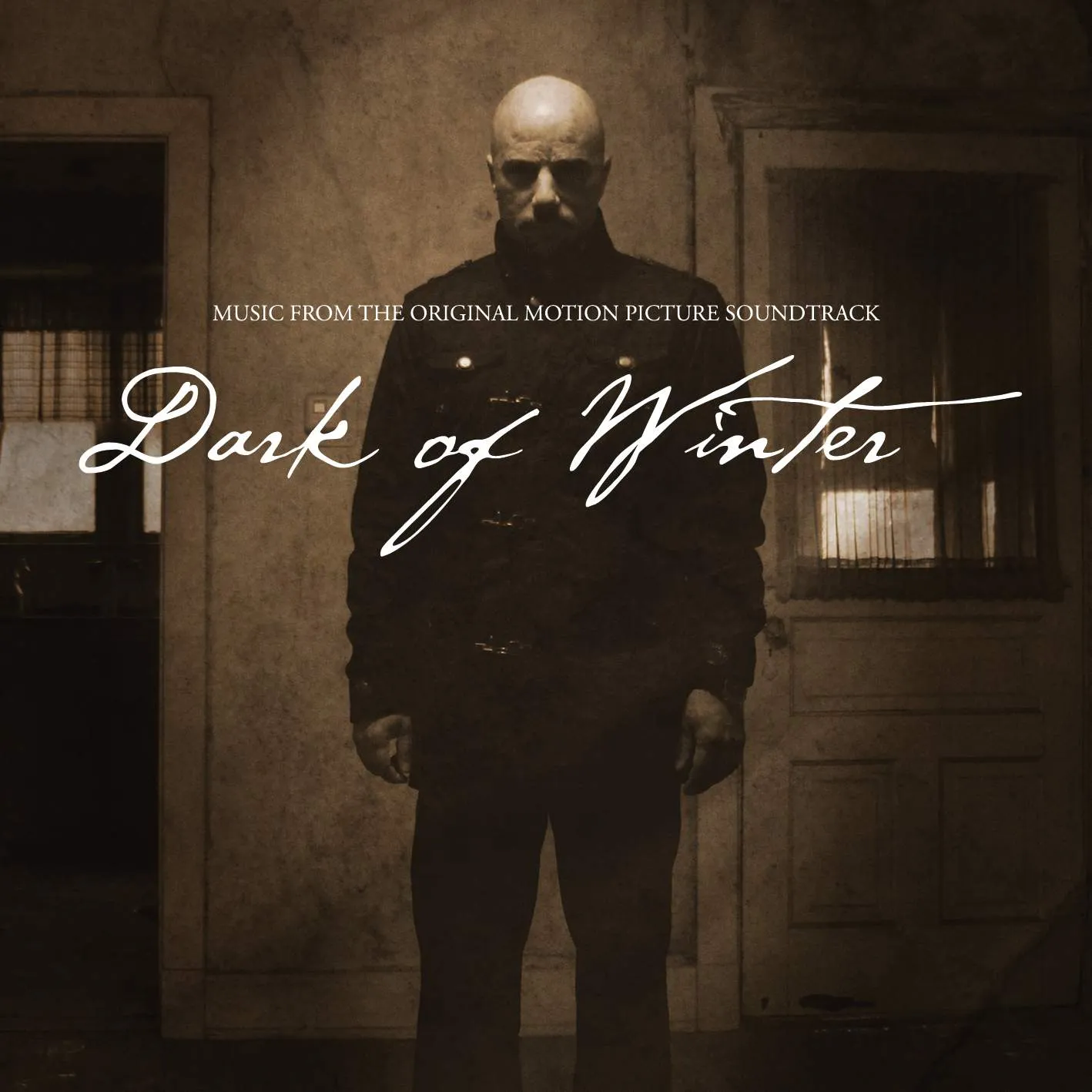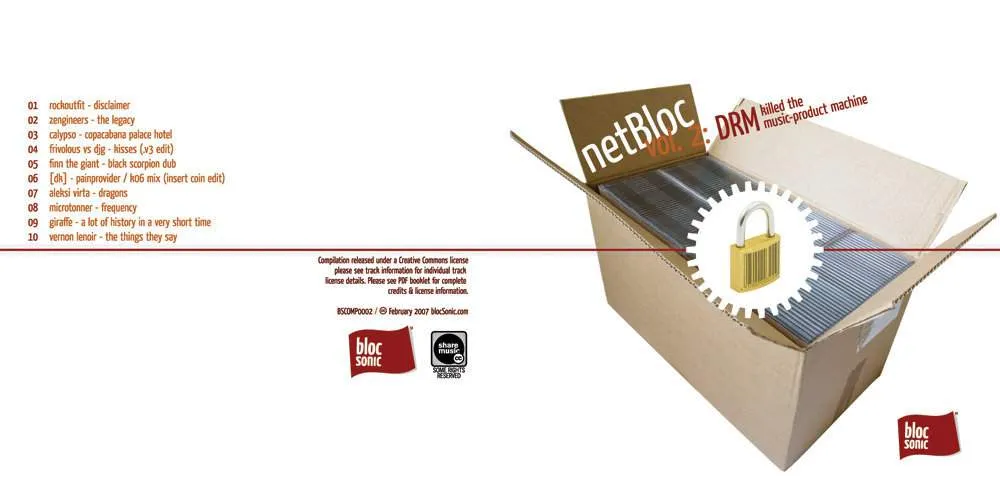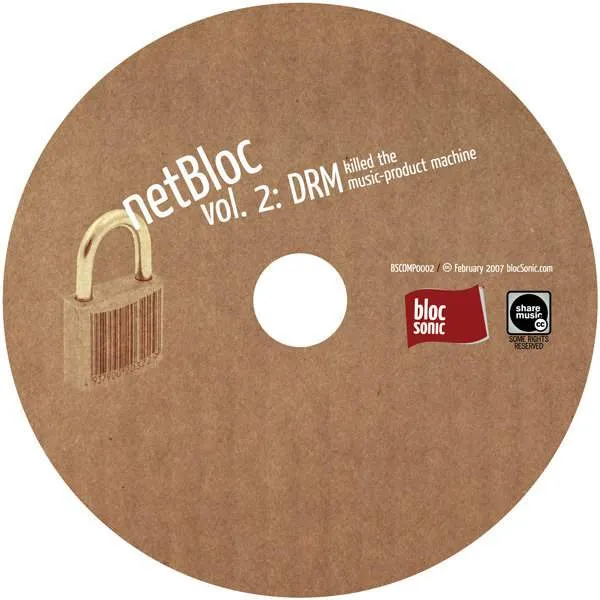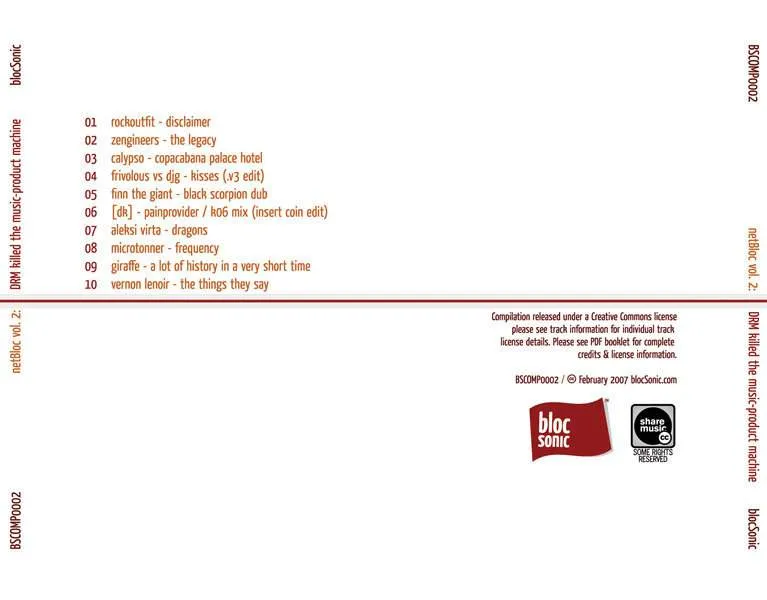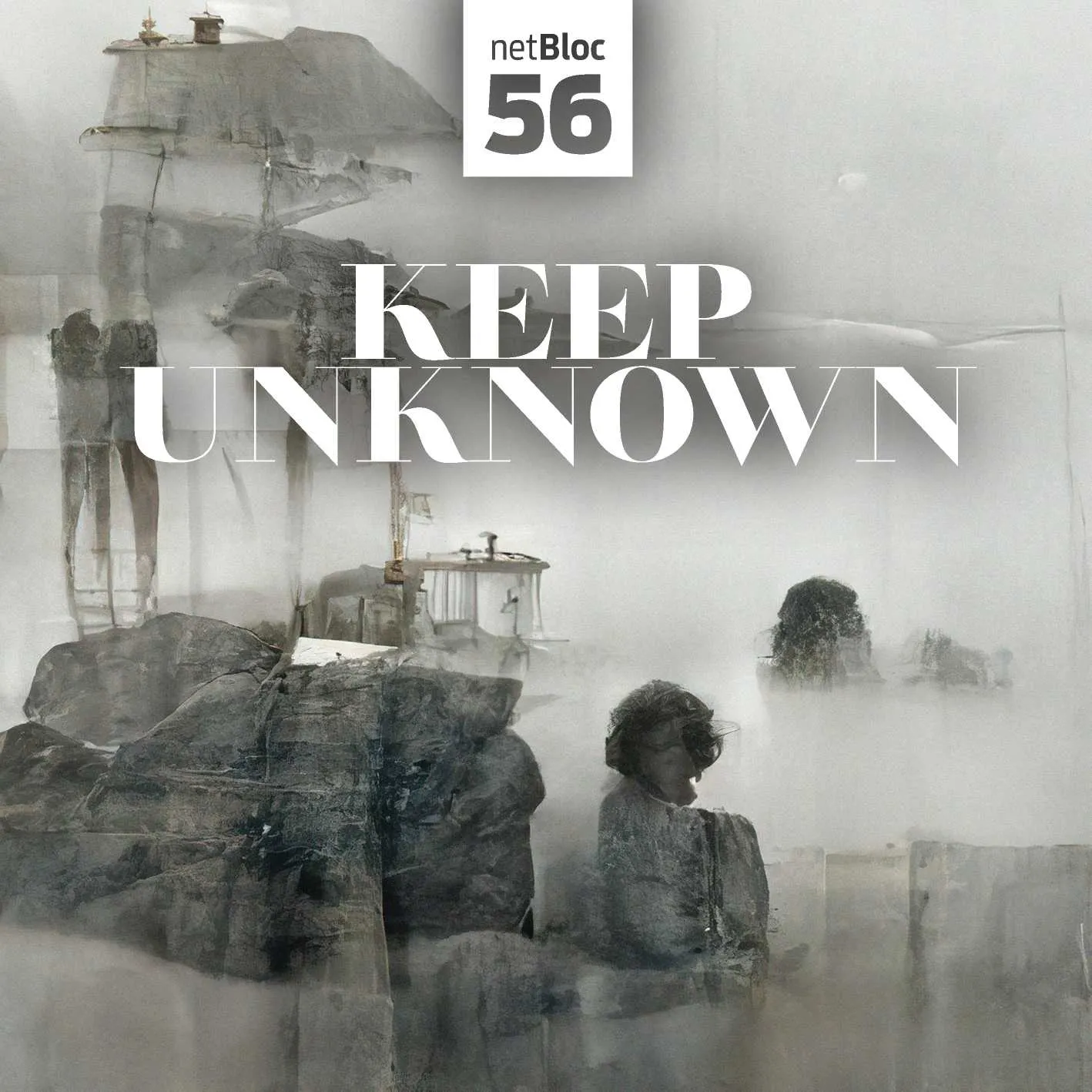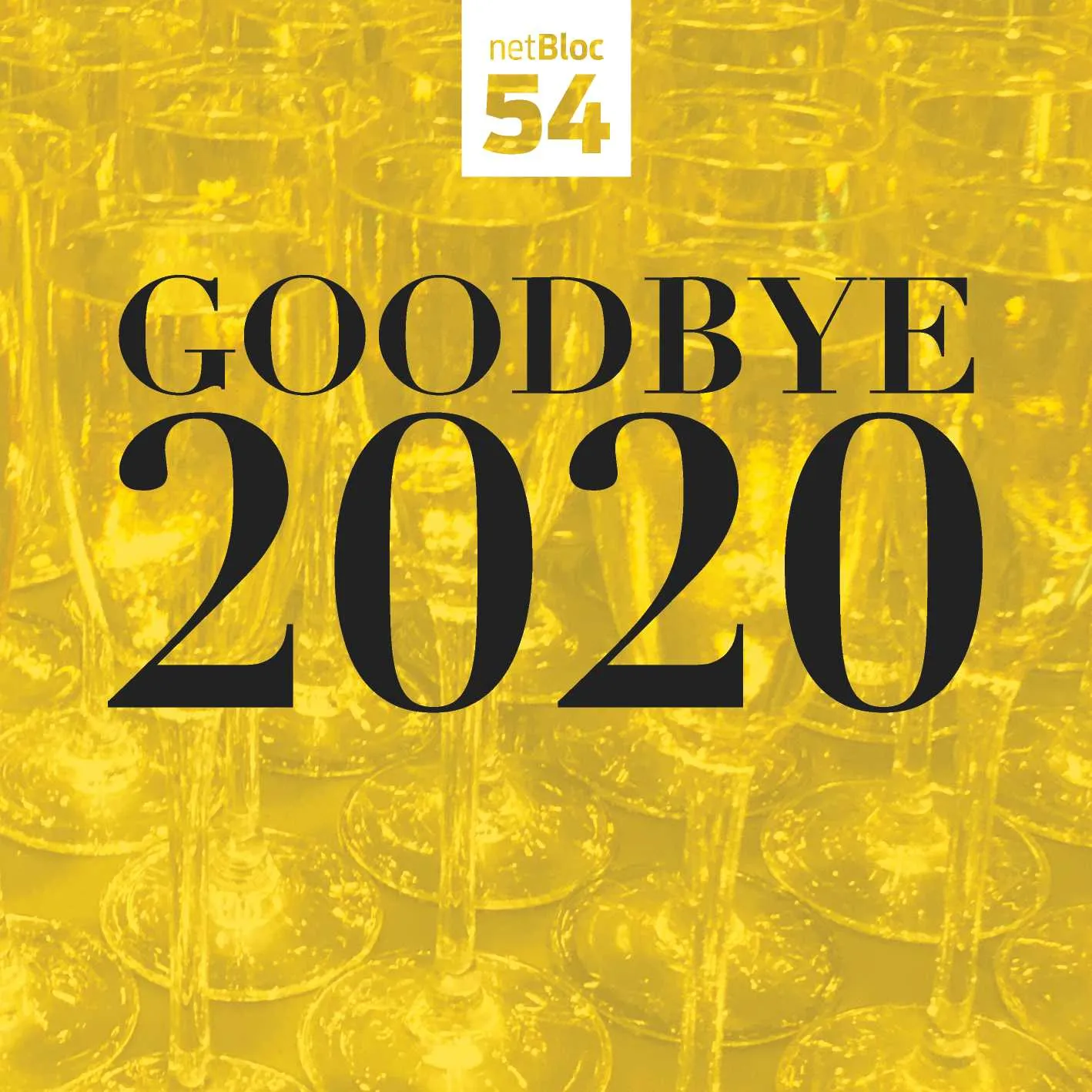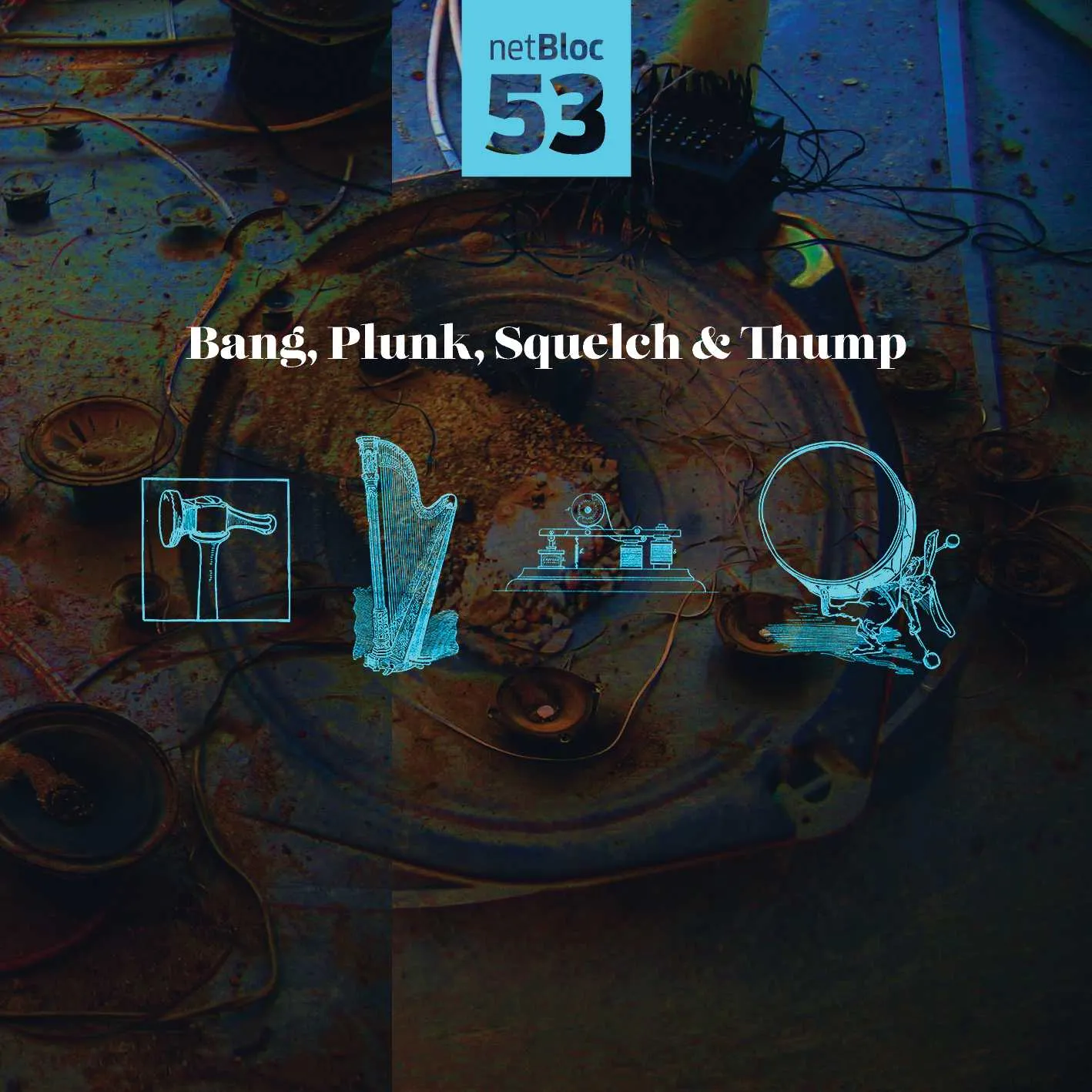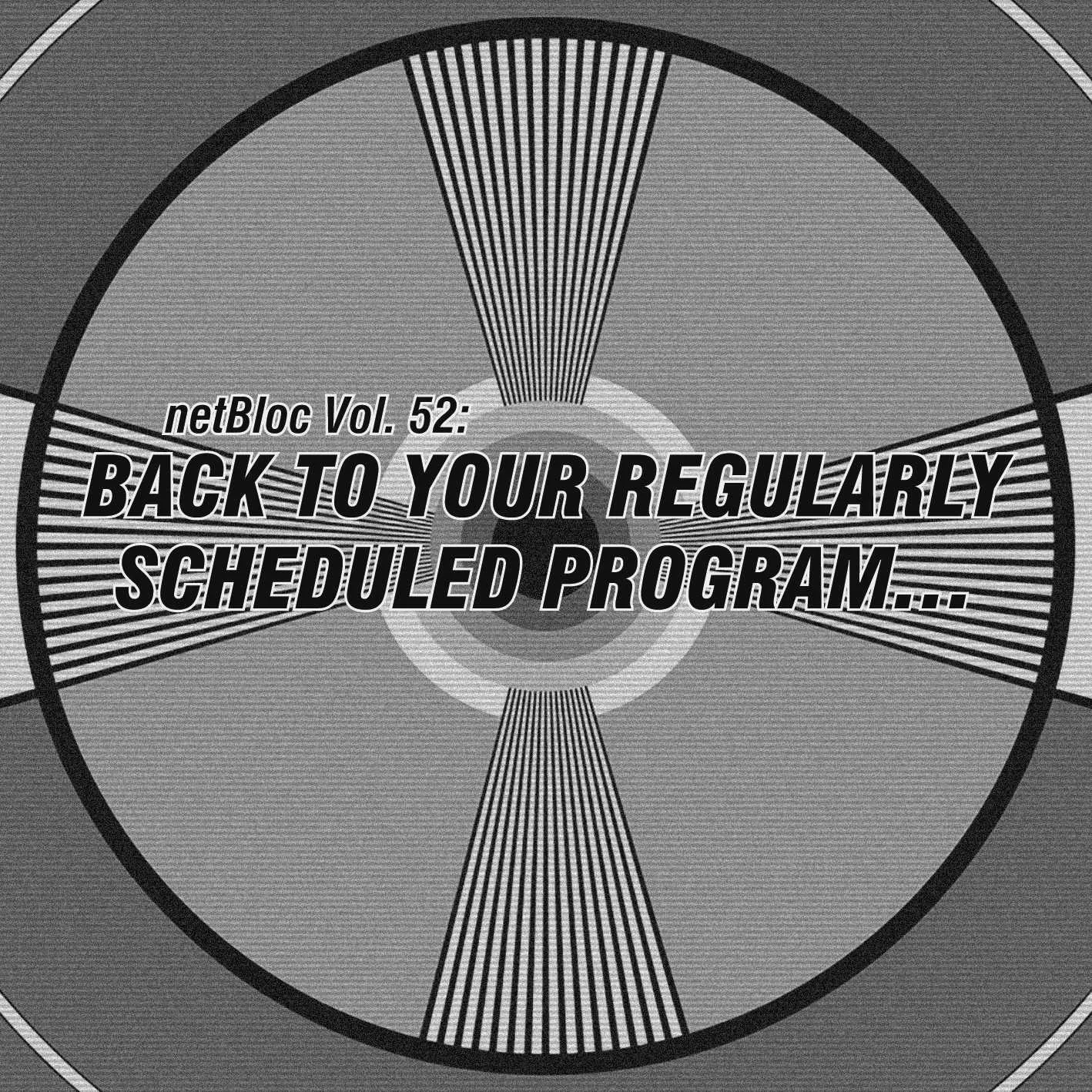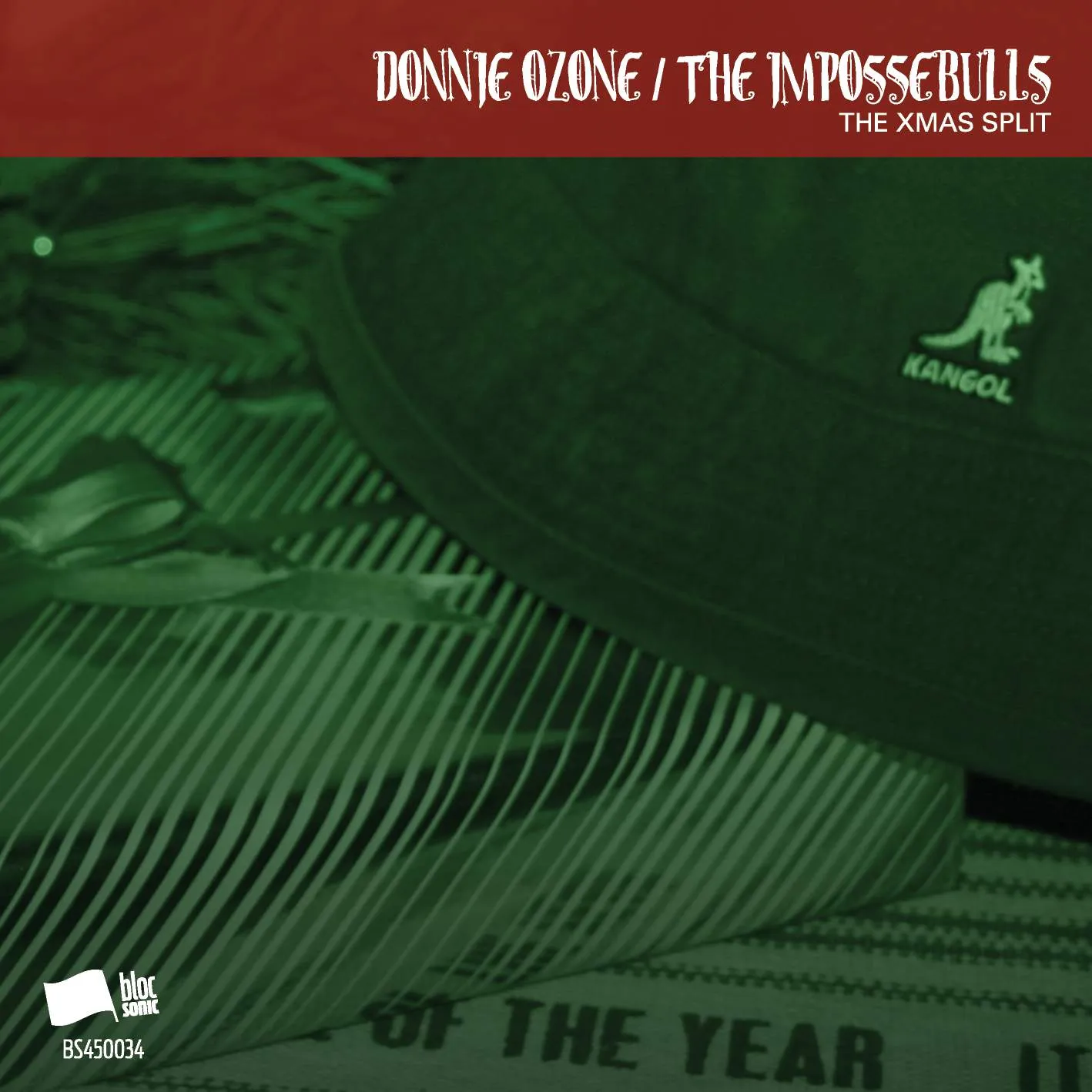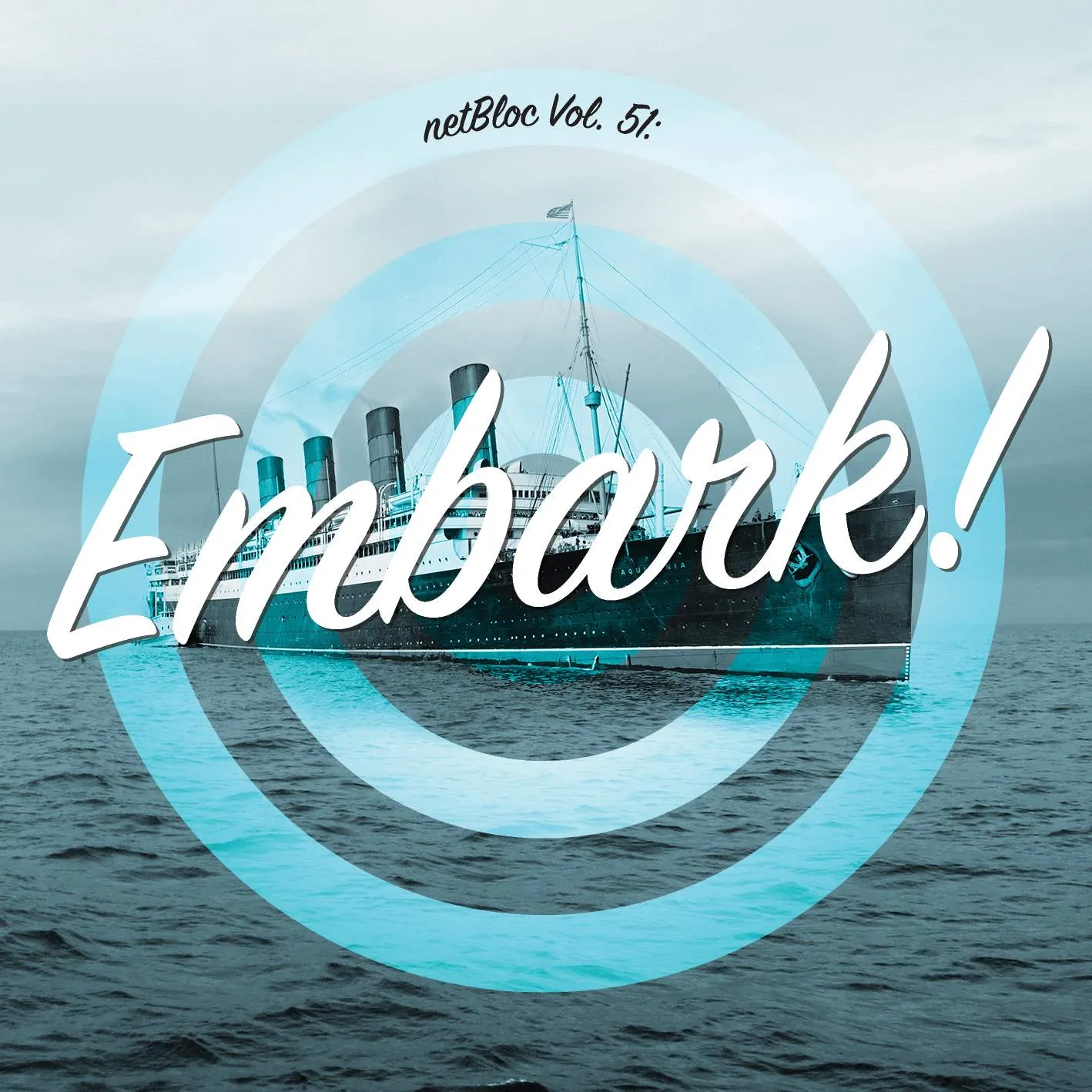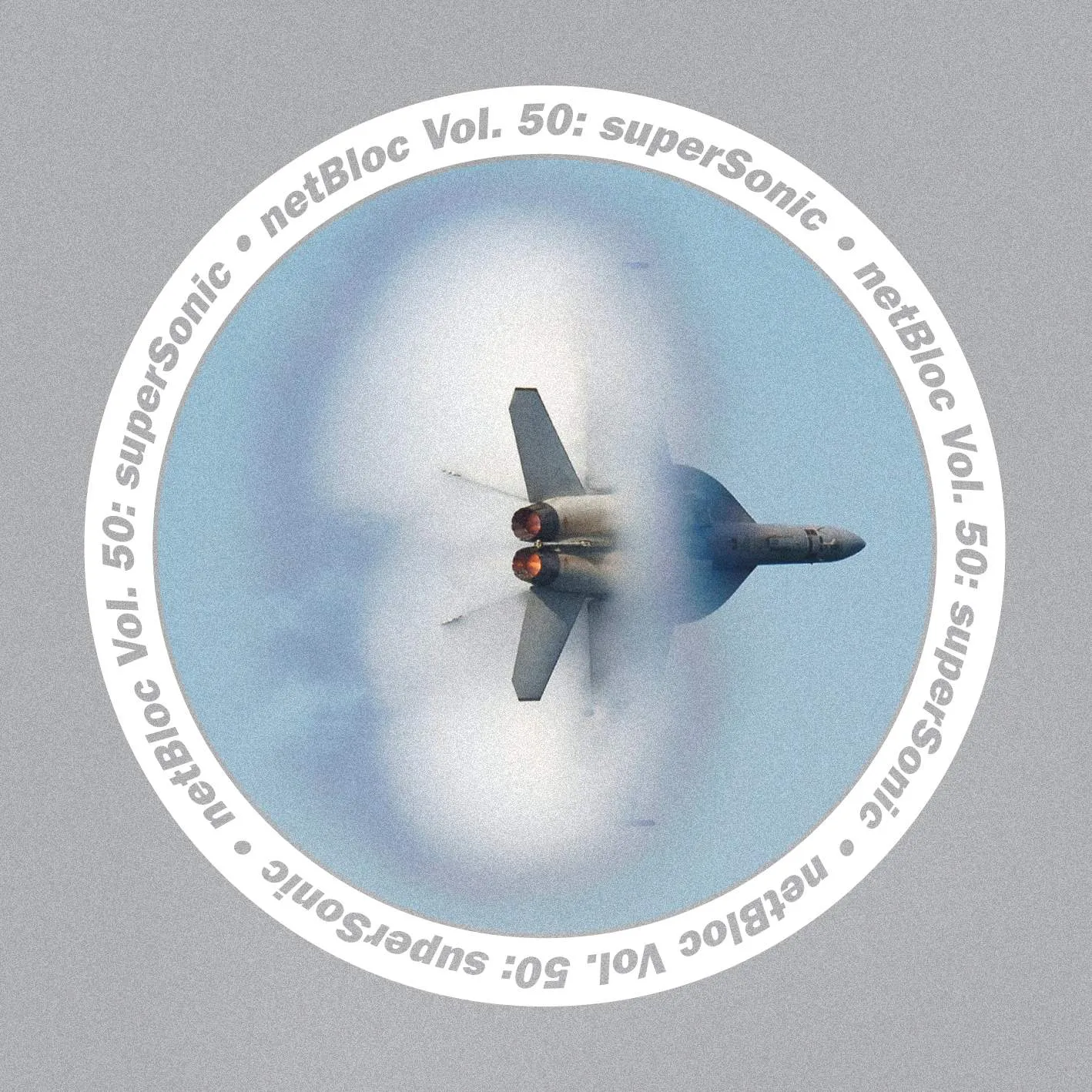Various Artists “netBloc Volume 2 (DRM killed the music-product machine)”
The manipulators of the major music industry are masters of manipulation. They've had 100 years to perfect it to a science. Though, like anything else… even masters of any domain can slip up occasionally. Their blunder was going digital in the first place. Of course, the industry's short-sighted money grab turned out to be an uphill battle for it.
Throughout the history of recorded music sales, the music industry has found ways to get the music listener to buy new copies of their favorite albums. At first the promise was higher sonic fidelity. Each label touted their own propietary "hi-fidelity" format as their sales pitch. Then came "portable" audio formats — reel-to-reel, 8-track cartridges and compact cassettes. With these formats, you could play them in more "portable" devices, another reason to buy yet another copy. Forget about audio quality here, the consumer versions of these products weren't much better than vinyl. In the case of 8-tracks and cassettes, it was more of a downgrade from vinyl than it was an upgrade. Anybody who has listened to an 8-track can understand the annoyance of the track changing mid-song.
By the late 1970s, vinyl and cassettes sales had levelled off. There was no longer any reason to upgrade your copy of 'The White Album' by the Beatles. What was needed was a format that provided a sonic upgrade. Since the early 70s, digital audio recording technology existed and was first used by Denon and the BBC for select releases. By 1978, the technology had reached the pop world with the recording of Ry Cooder's Bop Till You Drop. In 1979 Philips and Sony set out to develop a digital audio disc format. 1982 saw the launch of the first major audio format since the 8-track's release in 1964. Unlike the release of the tape formats, this format could be said to be a sonic upgrade and one that "would last 100 years". The industry touted the CD as the be-all-end-all of audio quality. The public didn't immediately bite. It took until 1986 and the release of the Beatles catalog for the masses to finally find a collective reason to buy the then expensive audio equipment needed to play the shiny new discs. Finally, the music industry had us. We would go out to upgrade our copies of 'The White Album' yet again.
The digital audio age has proven to be one in which the music industry has consistently tried to screw the music fan. From the beginning of the CD, the music industry promised lower prices would come. They never came. In fact, prices have gone up in many cases. Although prices for CDs were steep, at least with the cost the industry incurred some sort of expenses – marketing, production, packaging and distribution – as an excuse for high prices.
For a short time, the industry attempted to find yet another format to replace the compact cassette – DAT. DAT was dumb. Why upgrade to it? Tape? Everday Joe was not going to bite for yet another TAPE format.
However, by the late 90s, fans could make perfect duplicates of their favorite albums. The music industry's blunder and lack of foresight became apparent. The race was on to find a "new" format. One that could also be protected in order to "protect the rights of copyright holders". The industry was beat to the punch by unsanctioned digital file formats. Particularly MP3. This became one of many new formats of choice… an unprotected one. However, not being a controlled format, nor one that the music industry developed, it was not THE format in the eyes of the industry. The formats they eventually offered – mini-disc, Super Audio CD and HDCD, all have failed to catch. When it comes down to the "new" format, users will decide in the digital age.
After years of fighting downloading, the music industry has officially sanctioned digital music download sales. Though, any vendor who would like to sell digital music downloads, is required to wrap the lossy compressed files in a DRM (Digital Rights Management) protection scheme and apparently charge exuberant prices without complete album art. Dum..dee…dum.. here comes the Beatles remasters on iTunes. Buy your copy of 'The White Album' again.
.99 cents per track has become the de facto standard for selling digital downloads. iTunes has shown that average listeners are willing to be suckered again. Even independent artists/labels who are supposedly competing against the goliath that is the major music industry have joined the bandwagon. Independent music download stores are now charging .79-.99 cents per track. Why not? It's easy money. Let's see… no longer is there a distribution cost for the label, nor is there a need for packaging costs and marketing costs can be significantly lower. Wow… a fraction of the overhead that's incurred with CDs. Add to that the fact, that digital downloads are actually copies of the source file on a server (duplication costs? what? fugeddaboudit!), it's a wonder it took so long for the music industry to make the jump. Why is it that when music fans have more power than ever to choose what they listen to, they submit to such a controlled system?
The thing is, even a CD single can cost as low as 1.99 and that's with 2-3 tracks, packaging, distribution, duplication, marketing included in the overhead… and that still leaves room for profit. WTF?? I'm shocked that people have latched onto the .99 cent pricing scheme the way they have.
What happens when an alternative music industry blossoms? One in which labels provide their music in download form at the amazing price of free. One which derives it's livelihood from donations, sales of CDs on demand with complete packaging, merchandise and ticket sales? One which displays unheard of diversity and quality (at least unheard of in the major music industry)? What happens when the masses finally catch on to this alternative? What happens when an unreleased artist makes the major industry's music charts? Oh wait… the UK band Koopa just did it. What happens when that artist is on a netlabel… and their music is available for free download and is also Creative Commons licensed? Better yet, what happens when that blossoming industry decides it doesn't need the Billboard charts and comes up with it's own centralized charting system? Let's find out…
- Catalog Number: BSCOMP0002
- Release Date: February 13th, 2007
- Running Time: 39:35
Downloads
-
PDF archive download
-
Music archive downloads
-
Art archive downloads
License
![]() This work’s album art and booklet is licensed under a Creative Commons Attribution-NonCommercial-NoDerivatives 4.0 International License. Individual tracks retain their original licenses and may be more
restrictive. Please view individual track page or PDF for track license
information.
This work’s album art and booklet is licensed under a Creative Commons Attribution-NonCommercial-NoDerivatives 4.0 International License. Individual tracks retain their original licenses and may be more
restrictive. Please view individual track page or PDF for track license
information.
Related Releases
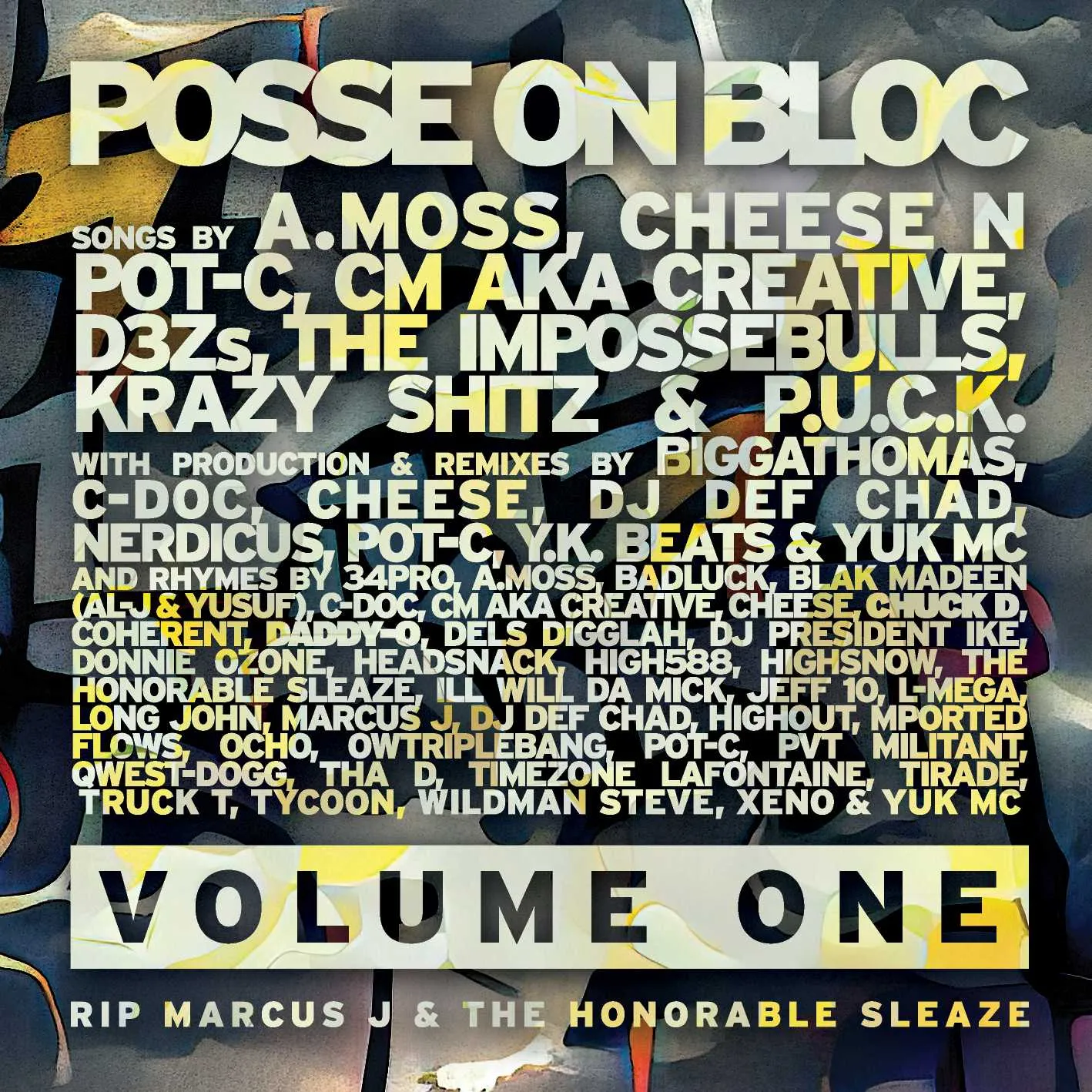
Posse On Bloc, Volume One (blocSonic Posse Cuts, So Far) by Various Artists
Year:
2022Genres:
License:
by-nc-sa 4.0